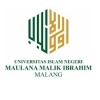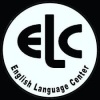DESIGNING PROJECT-BASED LEARNING IN ESP CLASS
Abstract
Full Text:
PDFReferences
Abdullah, M.Y., Abu Bakar, N. R., and Mabob, M. H. (2012). Student’s participation in classroom: what motivates them to speak up? Procedia – Social and Behavioral Sciences 51 (202) 516 – 522
Debele, E. T., and Kelbisa, E. M. (2017). The role of active learning methods for classroom participation: the case of first year students of sociology in Samara University. IOSR Journal of Humanities and Social Science, Vol. 22, Issue 7, 2017.
Day, C. (1999) Developing Teachers: the challenges of lifelong learning. London: Falmer Press.
Fennessy, D. (1998) Teachers’ Perceptions of the Effects of In-service Education and School Based Support on their Teaching, paper presented at the BERA Annual Conference, Queen’s University of Belfast, 27-30 August
Ha Le, Jeroen Janssen & Theo Wubbels. (2018). Collaborative learning practices: teacher and student perceived obstacles to effective student collaboration, Cambridge Journal of Education, 48:1, 103-122, DOI: 10.1080/0305764X.2016.1259389
Oliveira, L. C. (2015). A language-based approach to content instruction (LACI) for English language learners. Journal of Language and Literacy Education. Retrieved from;https://www.google.com/url?sa=t&source=web&rct=j&url=http://jolle.coe.uga. edu/wp-content/uploads/.
Sandholtz, J.H. (2000) Interdisciplinary Team Teaching as a Form of Professional Development, Teacher Education Quarterly, 27(3), pp. 39-54.
Sari, Rina. (2012). “Project-Based Learning dalam Pembelajaran Bahasa Asing”. Paper presented at UIN Malang
Suyanto, Kasihani K.E. & Octaberlina L.R. (2011). “The Teaching Techniques to Encourage Students to Speak.” Paper presented at the School of Humanity and Culture of UIN Malang.
The George Lucas Educational Foundation. (2005). Instructional Module Project-Based Learning.
Wringley, H.S. (1998). Knowledge in Action: The Promise of Project-Based Learning. http://www.nesall.net/?id=384.
DOI: https://doi.org/10.18860/jeasp.v2i2.8291
Refbacks
- There are currently no refbacks.

This work is licensed under a Creative Commons Attribution-ShareAlike 4.0 International License.







Editorial Office:
Pusat Pengembangan Bahasa
Program Khusus Pengembangan Bahasa Inggris (PKPBI)
Universitas Islam Negeri Maulana Malik Ibrahim Malang
Gedung C lantai 1
Jl. Gajayana No 50 Kota Malang, Jawa Timur, Indonesia
Kode Pos 65144, Telp/Fax : (0341) 570872
Email: jeasp@uin-malang.ac.id
JEASP : Journal of English for Academic and Specific Purposes is licensed under a Creative Commons Attribution-ShareAlike 4.0 International











